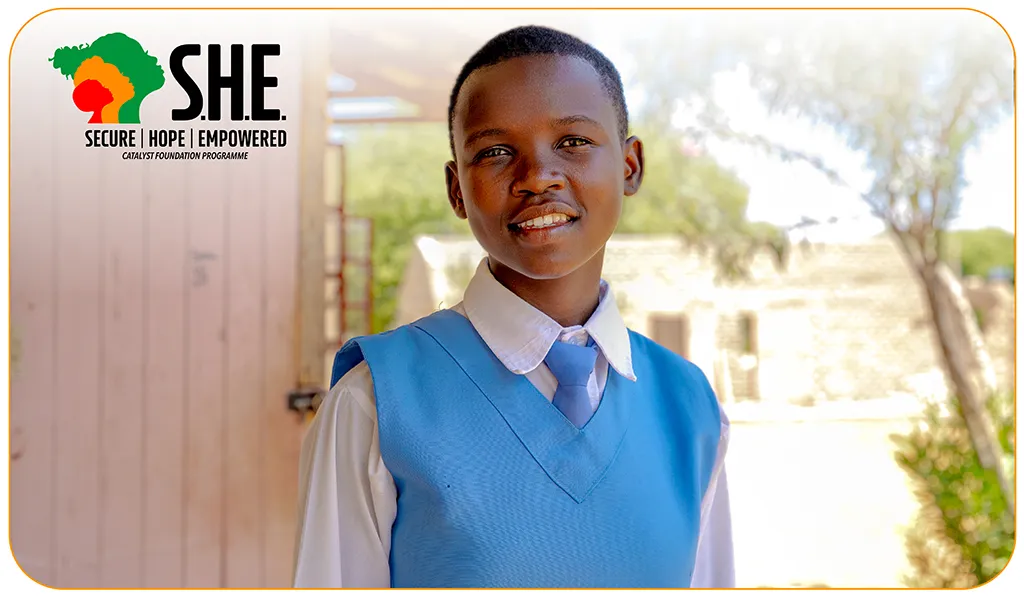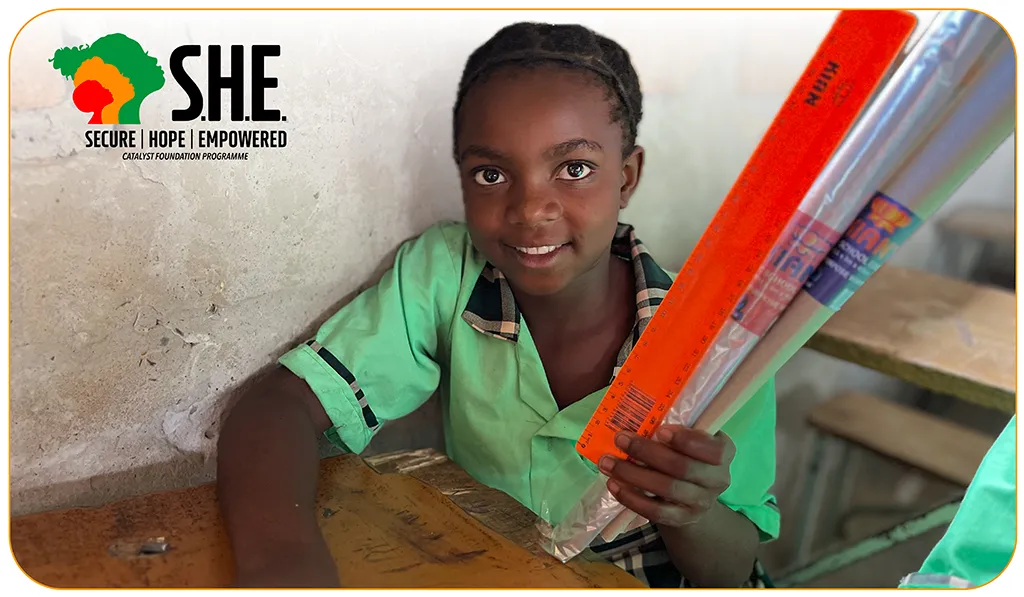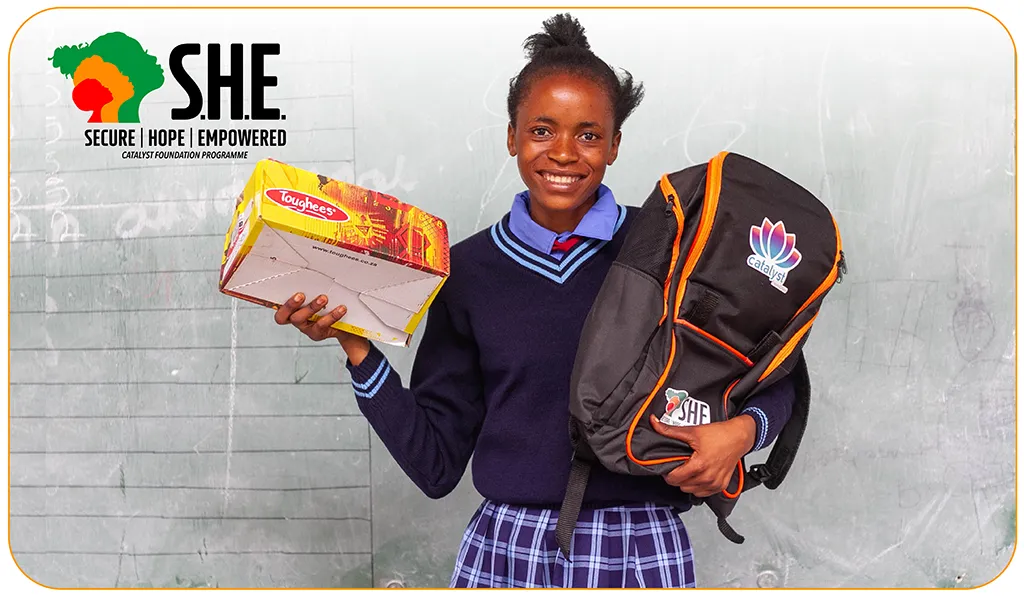Table of Contents
Beyond the Sidelines
In the vibrant nations of Zimbabwe and Zambia, a powerful movement is taking root. It transcends the boundaries of the playing field and transforms the lives of young girls. It’s the movement of girls’ sports, and it’s proving to be a game-changer in more ways than one.
For too long, girls in many parts of the world, including rural Zimbabwe and Zambia, have been sidelined when it comes to sports. Cultural norms, limited resources, and societal expectations often create barriers that prevent girls from participating in athletic activities. But the tide is turning. As Catalyst Foundation, we are proud to be stepping up to champion the cause of girls’ sports, recognising the profound impact it can have on their lives and their communities.
This blog post delves into the transformative power of girls’ sports in rural Zimbabwe and Zambia, exploring the challenges these young athletes face, the incredible benefits they reap, and the vital work of the Catalyst Foundation’s E.A.G.E.R.S. Sports programme in levelling the playing field. We also make a compelling case for why businesses and organisations in Zimbabwe and Zambia should invest in girls’ sports, becoming partners in this movement of empowerment.
The Challenges: Obstacles on the Path to the Pitch
Despite the growing recognition of the importance of girls’ sports, significant challenges remain in Zimbabwe and Zambia. These challenges often stem from deeply rooted societal norms and systemic inequalities:
- Cultural Barriers: Traditional gender roles often dictate that girls should focus on domestic duties rather than physical activities. This can lead to a lack of support from families and communities for girls pursuing sports.
- Limited Resources: Many schools, particularly in rural areas, lack the facilities, equipment, and coaching staff necessary to support girls’ sports programs. This disparity in resources compared to boys’ sports can discourage girls from participating.
- Lack of Awareness: The benefits of girls’ sports are not always well understood, even by parents and educators. This lack of awareness can lead to a lack of investment and prioritisation of girls’ sports initiatives.
- Safety Concerns: In some areas, concerns about safety, including harassment and violence, can deter girls from participating in sports, especially if it involves travelling to practice or games.
Period Poverty: The lack of access to sanitary products and proper facilities can cause girls to miss practices or games, further hindering their participation in sports.
The Triumphs: How Sports Empower Girls
Despite these challenges, the girls who do participate in sports in Zimbabwe and Zambia experience a wealth of benefits that extend far beyond the playing field:
- Improved Physical Health: Sports promote cardiovascular health, strength, and endurance, reducing the risk of chronic diseases like obesity, diabetes, and heart disease.
- Enhanced Mental Well-being: Participation in sports has been shown to reduce stress, anxiety, and depression, while boosting self-esteem, confidence, and resilience.
- Academic Success: Girls who play sports tend to perform better in school, with higher grades and graduation rates. They also develop important skills like time management, discipline, and goal setting.
- Leadership Development: Sports provide opportunities for girls to develop leadership skills, teamwork abilities, and communication skills. They learn to take initiative, motivate others, and resolve conflicts.
- Social Empowerment: Sports can help girls break down social barriers, challenge gender stereotypes, and build strong support networks. They learn to advocate for themselves and others, becoming agents of change in their communities.
Reduced Risk Behaviours: Participation in sports has been linked to a decreased likelihood of engaging in risky behaviours such as drug use, early sexual activity, and teenage pregnancy.
Catalyst Foundation’s E.A.G.E.R.S. Programme: Levelling the Playing Field
We at Catalyst Foundation recognise the transformative power of girls’ sports and have developed the E.A.G.E.R.S. (Empowerment through Athletics for Girls’ Equality, Resilience, and Sisterhood) Programme to address the challenges and unlock the triumphs for girls in Zimbabwe and Zambia.
The E.A.G.E.R.S. Programme is a comprehensive initiative that aims to:
- Increase Access: Provide girls with access to safe and supportive spaces to participate in a variety of sports. This includes creating and improving sports facilities, providing equipment, and training coaches.
- Challenge Norms: Work to change attitudes and beliefs about girls’ participation in sports through community awareness campaigns, workshops, and advocacy efforts.
- Empower Girls: Equip girls with the skills, knowledge, and confidence they need to excel in sports and life. This includes providing training in leadership, communication, and self-advocacy.
- Provide Holistic Support: Address the various barriers that can hinder girls’ participation in sports, such as period poverty, safety concerns, and lack of transportation.
Through the E.A.G.E.R.S. Programme, Catalyst Foundation is making a tangible difference in the lives of girls in rural Zimbabwe and Zambia. By providing them with the opportunity to participate in sports, the Foundation is empowering them to:
- Stay in School: Sports can be a powerful motivator for girls to stay in school, as it provides them with a sense of belonging, purpose, and achievement.
- Avoid Early Marriage and Pregnancy: Girls who participate in sports are more likely to delay marriage and pregnancy, as they have more opportunities for education and personal development.
- Become Leaders: Sports help girls develop the leadership skills they need to become active and engaged citizens, capable of making positive change in their communities.
- Live Healthier Lives: By promoting physical activity and healthy habits, the E.A.G.E.R.S. Programme is helping girls live healthier and more fulfilling lives.
The Untapped Potential: Statistics on Girls’ Participation in Sports in Zimbabwe and Zambia
While the impact of girls’ sports is clear, the reality is that participation rates in Zimbabwe and Zambia remain low. Reliable and up-to-date statistics can be challenging to obtain, but available data and reports indicate a significant disparity between boys’ and girls’ involvement in sports.
Reports from organisations working on the ground suggest that:
- A large percentage of girls drop out of sports as they reach adolescence, due to a combination of factors including increased household responsibilities, early marriage, and lack of support.
- Girls in rural areas face even greater barriers to participation than those in urban areas, due to limited resources and more conservative social norms.
- There is a lack of data specific to girls’ sports participation, highlighting the need for more research and monitoring in this area.
These statistics underscore the urgent need for programs like E.A.G.E.R.S. that actively work to increase girls’ access to and participation in sports. They also highlight the immense potential that remains untapped when girls are excluded from the world of athletics.
A Call to Action: Why Businesses Should Invest in Girls’ Sports
The benefits of investing in girls’ sports extend far beyond the individual girls involved. When businesses and organisations in Zimbabwe and Zambia support girls’ sports programs, they are investing in:
- A Healthier Workforce: Girls who participate in sports are more likely to become healthy and productive adults, contributing to a stronger workforce and economy.
- Stronger Communities: Sports can help build social cohesion, promote positive values, and reduce crime rates, creating safer and more vibrant communities.
- Gender Equality: Supporting girls’ sports is a powerful way to promote gender equality and challenge harmful stereotypes, creating a more just and equitable society.
- Social Responsibility: Investing in girls’ sports demonstrates a commitment to social responsibility and enhances a company’s reputation, attracting customers, employees, and investors.
- Future Leaders: Girls who develop leadership skills through sports are more likely to become effective leaders in their businesses, communities, and nations.
Here’s how businesses can get involved:
- Sponsorships: Sponsor girls’ sports teams, events, or leagues, providing funding for uniforms, equipment, and transportation.
- Partnerships: Partner with organisations like the Catalyst Foundation to support the implementation of girls’ sports programs.
- Mentorship: Provide female employees as mentors to young girls participating in sports, offering guidance and support.
- Infrastructure Development: Invest in the construction or renovation of sports facilities that are safe and accessible for girls.
- Awareness Campaigns: Support campaigns that promote the benefits of girls’ sports and challenge negative stereotypes.
By investing in girls’ sports, businesses in Zimbabwe and Zambia can make a lasting impact on the lives of young girls and contribute to the development of a more prosperous and equitable future for all.
The race to empower girls through sports in Zimbabwe and Zambia is on, and it’s a race worth winning. The Catalyst Foundation, through its E.A.G.E.R.S. Programme, is committed to breaking down barriers, challenging norms, and providing girls with the opportunities they need to thrive.
But we can’t do it alone. We need the support of individuals, communities, and businesses across Zimbabwe and Zambia to make this vision a reality. Together, we can create a future where every girl has the chance to experience the joy, the challenge, and the transformative power of sports.
Let’s work together to level the playing field and unleash the boundless potential of girls in Zimbabwe and Zambia. The future of these girls, and the future of our nations, depends on it.



